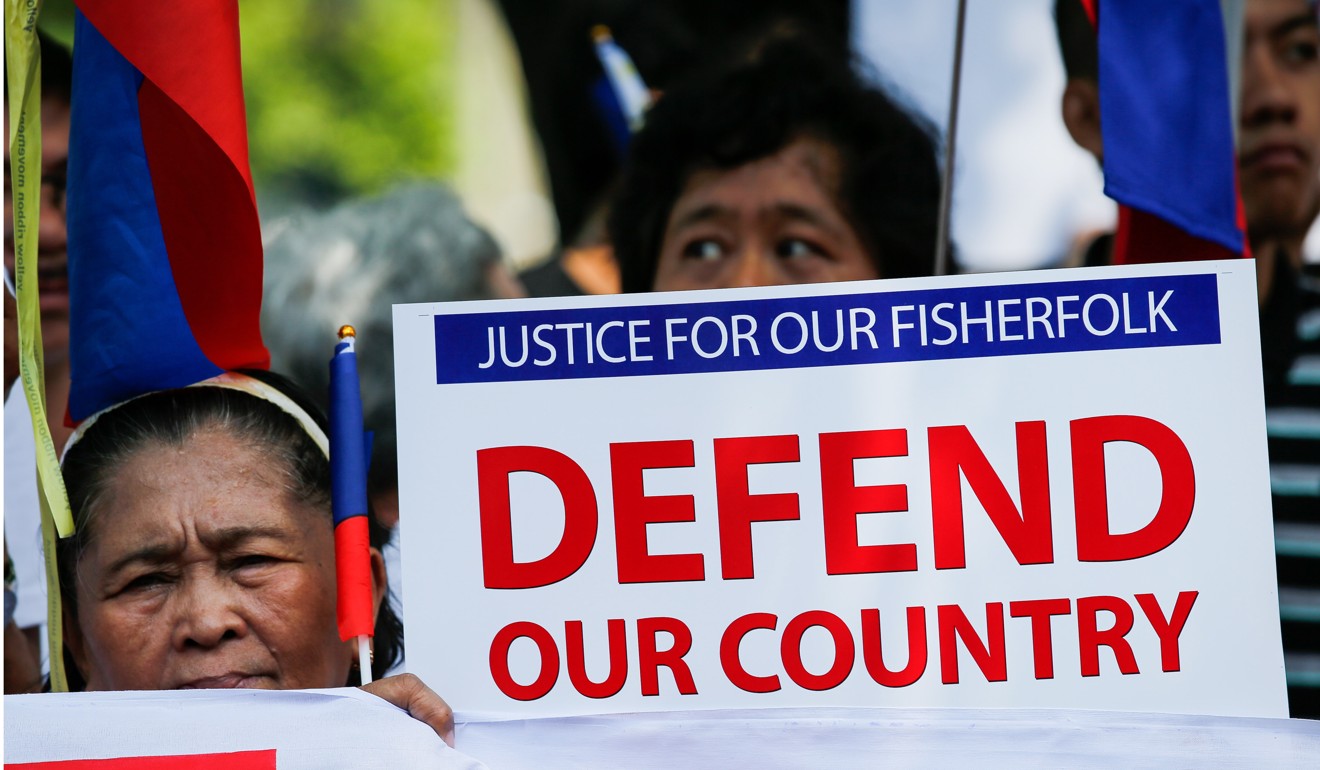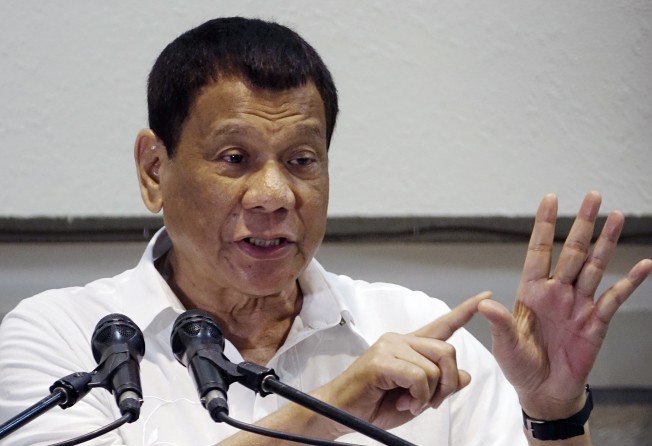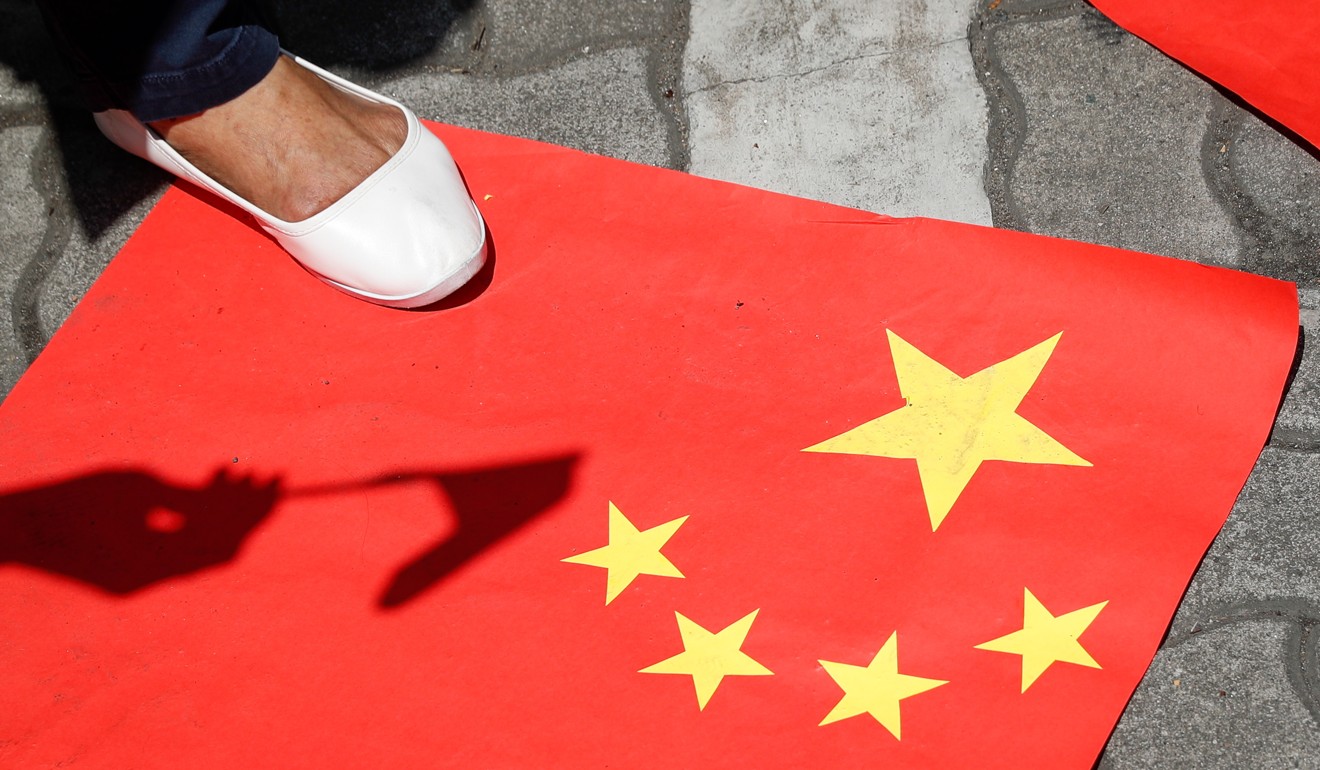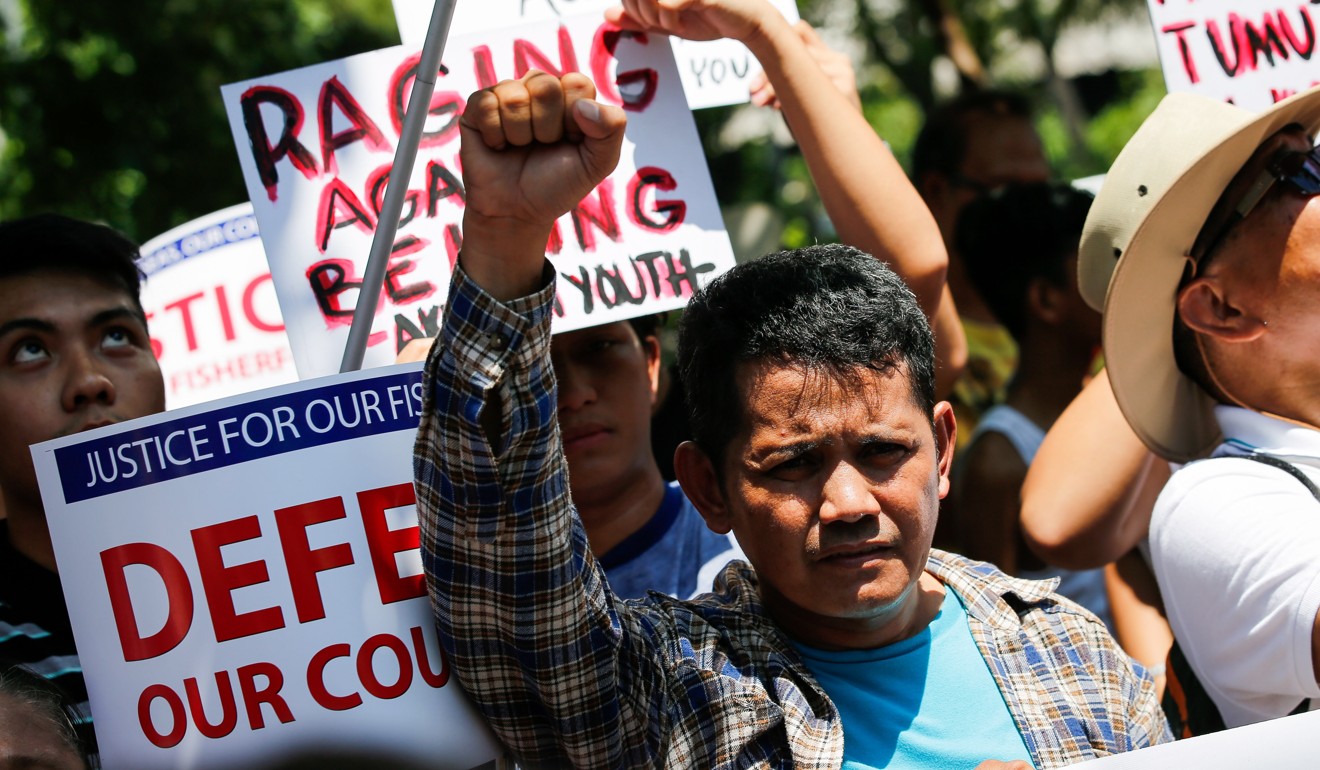
Rodrigo Duterte thought he had an understanding with Beijing, then came the Reed Bank collision
- The sinking of a fishing vessel in the South China Sea has become the Philippine president’s greatest foreign policy crisis, Richard Heydarian writes

“Just when I thought I was out, they pull me back in,” Michael Corleone famously says in The Godfather Part III as he realises that seemingly resolved problems have returned with a vengeance.
In many ways, Philippine President Rodrigo Duterte has found himself in a similar situation vis-à-vis disputes with Beijing in the South China Sea.
The collision in the contested energy-rich Reed Bank, where a Chinese vessel reportedly sank a Filipino fishing boat, is Duterte’s greatest foreign policy crisis yet.
If not properly addressed, the incident, which has provoked widespread anger across the Philippines, may also sink his rapprochement with Beijing. Contradictory statements from Philippine officials as well as China’s brazenly unapologetic response have only exacerbated the already tense situation.

After days of deafening silence, Duterte poured fuel on the fire by virtually echoing China’s version of the events.
Speaking before the Philippine Navy earlier this week, he effectively contradicted both the defence establishment as well as the victimised fishermen by dismissing the incident as a “[little] maritime incident”.
Thus, Duterte effectively parroted China’s position that the collision was an “ordinary maritime incident”, which should not have any significant bearing on bilateral relations.
Ruling out deployment of warships to the contested area, he enraged many Filipinos by saying that the “only thing we can do is wait and give the other party [China] the right to be heard”.
The Reed Bank incident, which ironically took place on June 9, Philippine-China Friendship Day, came just weeks after Duterte’s visit to Beijing in April.
During his meeting with Chinese officials, he tried to de-escalate tensions over the swarming of Philippine-held land features by an armada of Chinese militia forces in recent months.
Then the Reed Bank crisis occurred, and this time, Duterte chose to contradict his own senior officials to avoid diplomatic spat with Beijing.
Earlier, Philippine Defence Secretary Delfin Lorenzana and the Philippine Navy accused China of intentional ramming the Filipino fishing vessel and leaving its 22 crewmen to drown. They were later rescued.
Duterte’s Cabinet Secretary Karlo Nograles confirmed that based on “initial findings by different agencies of the government … it looks like an ‘allision’ … as [the Filipino vessel] was anchored [when it was hit]”.

A chorus of criticism across party lines met Duterte’s soft-pedaling on the incident, which has dominated Philippine headlines for the past week or more.
Senator Joel Villanueva, an ally of the president who has been critical of the large influx of Chinese illegal workers into the Philippines, lambasted the government for contradictory statements.
“One thing is clear to our minds. It seems that in this particular case, even the government is in a state of confusion,” he said, calling on the government to take a tougher stance on the disputes.
“How many more fishermen should be put in harm’s way before we get our act together?” he said amid growing criticism of Duterte’s acquiescent policy on China.
Opposition members such as Congressman Carlos Zarate accused the government of a cover-up by intimidating and bribing the Filipino fishermen into silence.
The accusation came soon after senior government officials met the victims of the collision, offering them financial aid and new boats. Subsequently, the fishermen began to sound less critical of China and the president’s statement about the incident.
“They twist [the fishermen’s] statements, maybe there are even threats and bribes. They may have bribed them with these kinds of boats,” Zarate said.

Panfilo Lacson, a prominent and staunchly independent senator, lamented how the Filipino president “left us heartbroken” by downplaying the incident.
He accused Duterte of resorting to de facto “surrender” without exploring “all resources available”. Crucially, however, the senator called on the Philippine government to invoke its Mutual Defence Treaty with the United States to push back against China’s growing fishermen-cum-militia presence in the area.
His statement came on the back of the Trump administration’s increasingly vocal and less ambiguous expression of commitment to its Philippine ally amid the South China Sea disputes.
In March, US Secretary of State Mike Pompeo made it clear that since “the South China Sea is part of the Pacific, any armed attack on Philippine forces, aircraft or public vessels will trigger mutual defence obligations” under the treaty.
Many Filipinos suspect that the Chinese vessel involved in the collision was part of Beijing’s burgeoning maritime militia force roaming contested areas.
They reportedly receive fuel subsidies and basic military training as well as implicit or explicit assurances of support from Chinese authorities and naval forces in the event of a confrontation with vessels from rival countries.
Late last year, the Pentagon said it would treat Chinese maritime militia forces as extensions of the PLA Navy and thus employ the same rules of engagement to both.
The US ambassador to the Philippines Sung Kim raised the stakes by stating recently that any “armed attack” which “would include government-sanctioned militias” could trigger American military intervention on the Philippines’ behalf.
The best way forward is for both sides to agree to a mutually acceptable version of the incident through a thorough and impartial investigation, potentially with neutral third-party assistance. Proper punishment and reparations should follow.
Moreover, the Philippines and China should finalise relevant maritime and fisheries confidence-building measures to prevent such incidents.
Above all, Beijing will have to rein in its increasingly unruly and aggressive fishermen-cum-militia forces, lest it irrevocably sink improving relations with Manila and push the Philippines and other regional states further into America’s embrace.
Otherwise, like Michael Corleone, Duterte and China will keep on getting pulled back into one crisis after another.